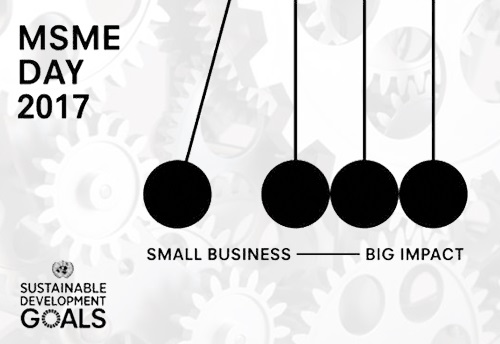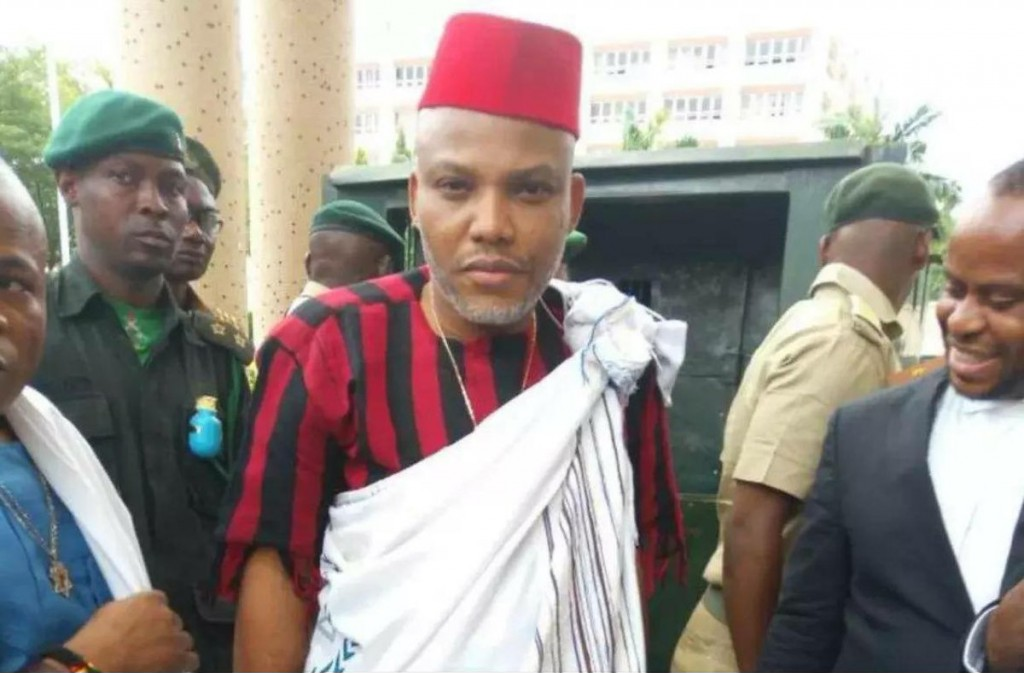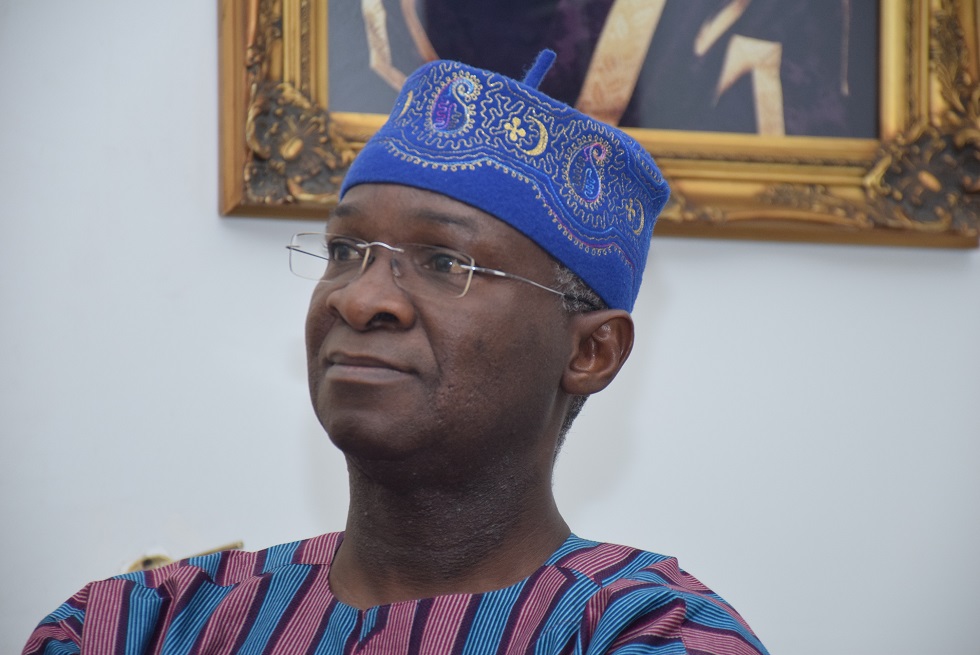ABIMBOLA OLIGBINDE
The United Nations General Assembly in April 2017, designated 27 June as International Day to recognize and celebrate the importance of Micro, Small and Medium sized Enterprises (MSMEs) in achieving the new global development goals
In a resolution adopted without a vote, the 193-member body also invited all stakeholders, including Member States, UN entities and civil society organizations, to observe the Day and raise public awareness of their contribution to the 2030 Agenda for Sustainable Development, which the Assembly adopted in September 2015.
MSMEs are regarded as the major drivers of an economy. In Nigeria, they have been contributing to nation’s economic development and growth; creating jobs, creating wealth, and generally sustaining creating a pool from where the needs of Nigerians are met (in terms of products/commodities and services). Unfortunately, small businesses have not been empowered enough to create the much needed industrial revolution that will sustain the nation’s economy and reduce its over-reliance on crude oil as a means of foreign exchange (it constitutes about 82% of government revenue).
The high rate of unemployment has constituted to the increase in the number of MSMEs in Nigeria (currently estimated to be about 5 million), with many more young graduates now venturing into business instead of searching for jobs that have now become difficult to get. Gone are the days that MSMEs were confused for partisanship; there are more innovative businesses in Nigeria now with a social development focus (social
enterprises).
Advertisement
In the past one decade, the Nigerian government (various administrations) have made attempt at empowering MSMEs to thrive. From the establishment of Microfinance banks (expected to provide low-interest business loans for small businesses) to the provision of bail-out funds when it became evident that the Microfinance banks were falling short of their expectations, to various government-sponsored initiatives/competition established to provide training and funding for small businesses.
However, government efforts have not been enough, as a matter of fact, they can be likened to a drop of water in a tiny ocean. There is a lot of work to be done. The current economic situation in the country is an attestation to the fact that MSMEs have not been given an enabling environment to thrive. The problems they confront are enormous: from inadequate funding, to problems of infrastructure, to multiple taxation, and cumbersome government processes; the headaches of an entrepreneur in Nigeria are unbelievable. The problems have been lingering yet nothing tangible has been done to ameliorate them.
Yet, for us to have a buoyant economy, the role of MSMEs cannot be overstated. Once upon a time, our social stratification included the upper class, the middle class and the lower class. Now, the middle class is gradually becoming eroded with many families barely surviving. Salary earners are the worse-hit in the current economic problem confronting our nation. No salary increase (in fact there have been salary reductions in the past one year), yet prices of commodities are skyrocketing.
Advertisement
The mass loss of jobs and the inability of young graduates to get jobs or capital to create jobs for themselves and others, all remind us of a need for a radical approach towards eradication of poverty and hunger. Many people are hungry. The number of beggars has increased. Many families cannot even afford the basic necessities of life; food, clothing, shelter and quality education for their children.
An industrial revolution through entrepreneurship is our only solution out of this economic mess. We need to invest in young entrepreneurs (not bourgeoise capitalists), who will create innovative solutions to our problems as a nation.
Young people are running small businesses and social enterprises with potential to solve problems of high unemployment. They can hire, train and develop the capacities of unemployed youths. They have the capacity
to create an industrial revolution such that our local products will become more competitive and our reliance on imported goods would become reduced.
Fund businesses! Fund them for real! It’s that simple. Don’t just provide funds to be looted by politicians and corrupt civil servants, ensure the businesses get them directly. China did the same; providing funding and technical training for their startups, now we run there even for something as small as toothpick.!!!
Advertisement
In my work as an MSME promoter, I have seen innovative ideas needing as low as N750,000 to N2 million naira to scale up. Fantastic ideas die before they are even actualised. Let’s quit being hypocritical, there is no business we can start with zero capital. None! Every business needs capital to even take off, talk less of succeeding.
There is a need to buy made in Nigeria products and patronise our local businesses. There has been a remarkable improvement in this aspect and I must commend the efforts of people who have been buying locally manufactured products. As an SME promoter, it gives me joy to see these products on the shelves of superstores, in homes and hotels. However, there is a need for improvement. We cannot build a sustainable economy on imports. There is a need for us to develop our own industries as well, to satisfy local demand (with a population of about 170 million people, the demand is high) and for a means of foreign exchange. We can’t keep buying without selling. The only viable thing we export as a nation is crude oil and by now we all know that isn’t sustainable.
On the issue of power generation and distribution; there is hardly any entrepreneur who is not affected by the epileptic power supply. It has reduced the efficiency of many businesses while it has rendered many more comatose. I often say that even if the government fails to fix other moribund infrastructure, the power problem should be fixed. This will go a long way in ameliorating the problems many entrepreneurs face. Our products and services cannot be competitive when we spend lots of money on buying fuel for power generation.
On cumbersome government processes: registration of businesses, approvals for standardizations and certifications, there is still much to do. Kudos to NAFDAC for recently reducing the cost of getting approvals for products manufactured by MSMEs. There is laudable, considering the fact that many small businesses do not have the financial capacities to pay huge fees for such approvals. More regulatory agencies need to take a cue from NAFDAC.
Advertisement
Lastly, government should invest in building industrial clusters for innovative business ideas instead of spending so much money on building free trade zones that only foreign investors and rich politicians can afford. Look at what some young people are doing in the tech industry. They are creating hubs for learning, mentoring, collaborations and shared workspaces. That is what government should invest in. If we had such for the media, agriculture, fashion&textile, health, entertainment, manufacturing and other viable sectors, there would be a remarkable boom in our economy.
Government technical colleges across the nation that have become abandoned should be revamped in way that they would not only focus on training artisans but entrepreneurs that would build sustainable businesses.
Advertisement
Oligbinde, founder of Melethsey Media Ltd, a company that promotes small and medium enterprises in Nigeria, can be reached via [email protected]
Advertisement
Views expressed by contributors are strictly personal and not of TheCable.
Add a comment






